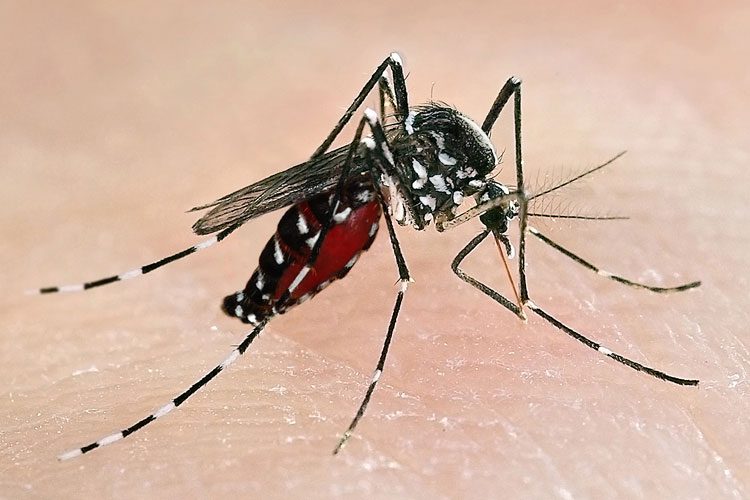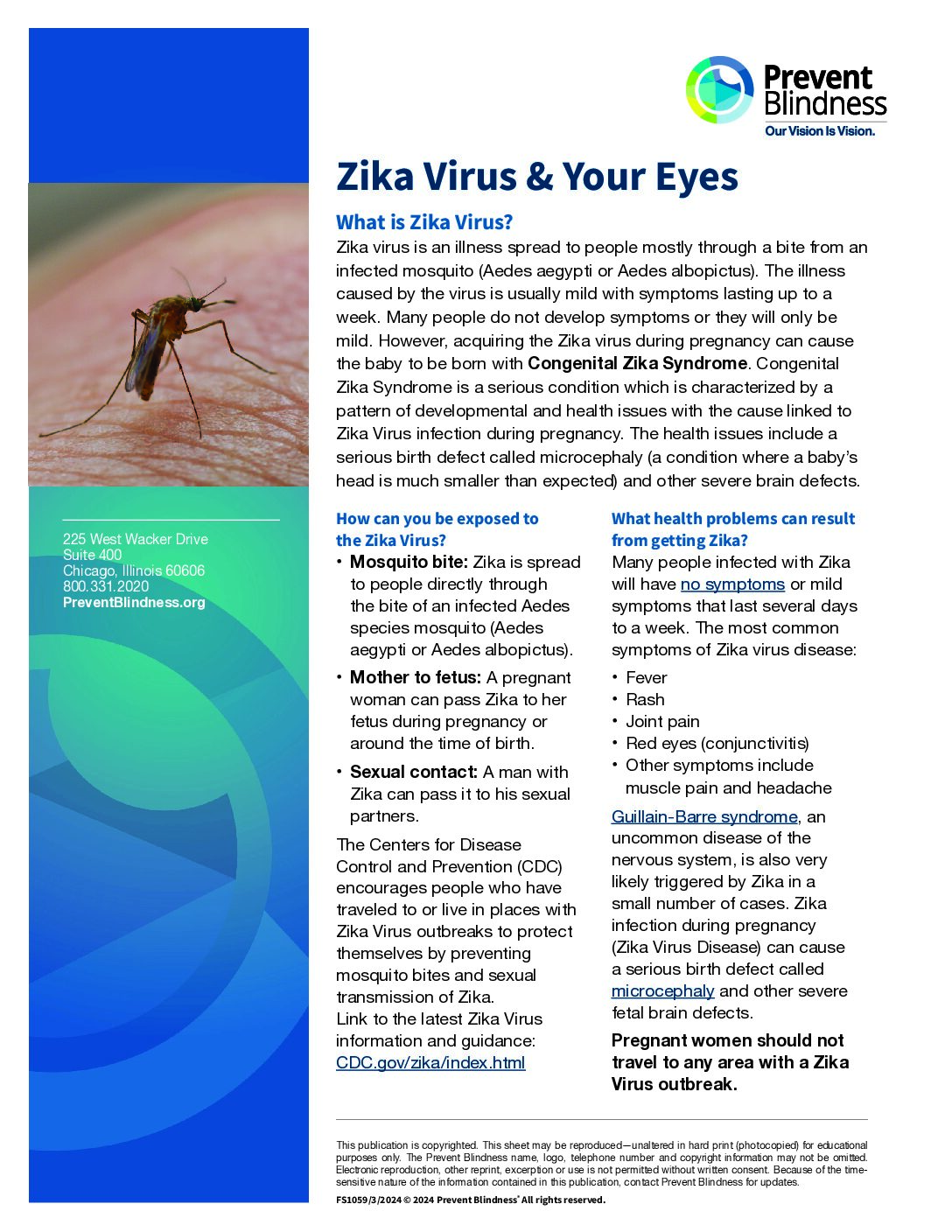What is Zika Virus Disease and who is at risk?
Zika virus disease is caused by the Zika virus. The virus is spread to people mostly through the bite of an infected mosquito (Aedes aegypti and Aedes albopictus). The illness caused by the virus is usually mild with symptoms lasting up to a week. Many people do not have symptoms or will have only mild symptoms. However, infection of the Zika virus during pregnancy can cause a serious birth defect called microcephaly (a condition where a baby’s head is much smaller than expected) and other severe brain defects.
How are you exposed to the Zika Virus?
Mosquito bite: Zika is spread to people directly through the bite of an infected Aedes species mosquito (Aedes aegypti and Aedes albopictus).
Mother to fetus: A pregnant woman can pass Zika to her fetus during pregnancy or around the time of birth.
Sexual contact: A man with Zika can pass it to his sexual partners.
The CDC encourages people who have traveled to or live in places with Zika Virus outbreaks to protect themselves by preventing mosquito bites and sexual transmission of Zika.
What health problems can result from getting Zika?
Many people infected with Zika will have no symptoms or mild symptoms that last several days to a week.
Guillain-Barre syndrome, an uncommon sickness of the nervous system, is also very likely triggered by Zika in a small number of cases. Zika infection during pregnancy (Zika Virus Disease) can cause a serious birth defect called microcephaly and other severe fetal brain defects.
Pregnant women should not travel to any area with a Zika Virus outbreak. Travelers who go to places with outbreaks of Zika can be infected with Zika, and Zika infection during pregnancy can cause microcephaly and other severe fetal brain defects including severe vision problems.
Pregnant women who have recently traveled to an area with Zika should talk to their doctor about their travel, even if they don’t feel sick.
Pregnant women should see a doctor if they have any Zika symptoms during their trip or within 2 weeks after traveling.
All pregnant women can protect themselves by avoiding travel to an area with Zika, preventing mosquito bites (through use of bug spray including DEET and covering exposed skin with long sleeves, socks, and pants), and following recommended precautions against getting Zika through sex.
Once someone has been infected with Zika, it’s very likely they’ll be protected from future infections. There is no evidence that past Zika infection poses an increased risk of birth defects in future pregnancies.
What impact does Zika Virus have on vision?
For those who contracted Zika from a mosquito bite, through sexual intercourse, or a blood transfusion:
Mild symptoms may include conjunctivitis (redness of eyes with a clear, watery eye discharge but without fever, eye pain, or eyelid redness.) It is generally not contagious especially if the Zika-related symptoms have been present for several days. Individuals should consult an eye care provider (optometrist or ophthalmologist) if the symptoms persist.
For children who are born with Zika Virus Disease:
Researchers are still discovering the full scope of vision-related problems for children who are born with Zika Virus Disease, however significant structural and developmental issues have been seen in the eyes of babies born with the infection and presence of microcephaly. Vision problems can include macular and optic nerve damage. The impact of Zika Virus Disease on vision for children born without the presence of microcephaly is not yet known and careful monitoring of these children is needed until formal practice standards are established.
What long-term vision and health care will children born with Zika Virus Disease require?
The amount and frequency of healthcare services for children born with the Zika Virus Disease will vary on the severity of the microcephaly or other brain defects the child has. All infants should receive an eye examination while they are in the newborn nursery at the hospital, and periodic eye exams throughout their lifetime. The child’s primary health care provider will coordinate services with other health specialists–including eye care providers–based on the specific health needs of the child. For more severe microcephaly, babies will need care and treatment for their multiple health problems which will likely include long-term vision care and monitoring. Developmental services early in life will often help babies with microcephaly to improve and maximize their abilities. These services, known as early intervention, can include speech, occupational, and physical therapies. Children who experience vision loss or blindness will need to see a low vision specialist or have access to low vision devices to maximize the child’s independence and mobility as they get older.
What resources are available for families who need help accessing eye care?
Prevent Blindness maintains a regularly updated list of national programs which may be able to help pay for the cost of eye examinations, medical care, and medications. This information is available in English and Spanish.
Vision Care Financial Assistance Resources

